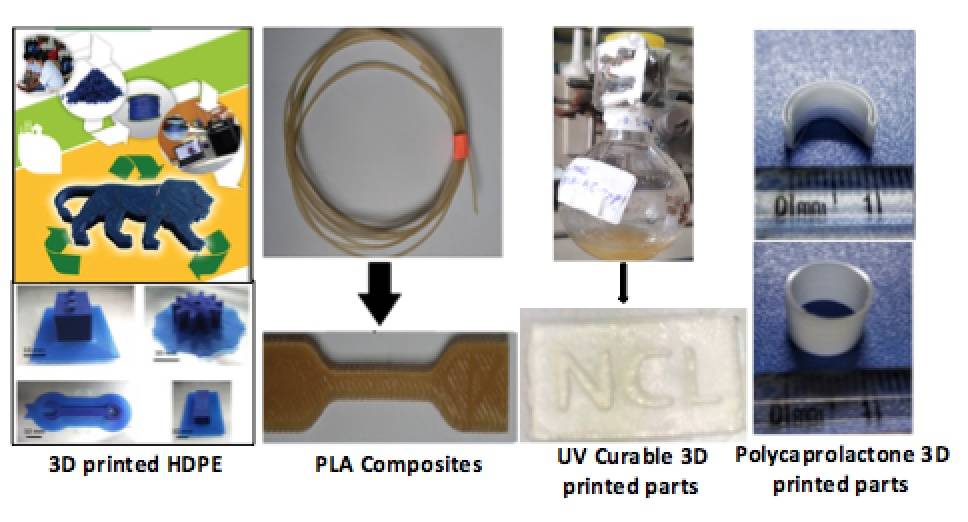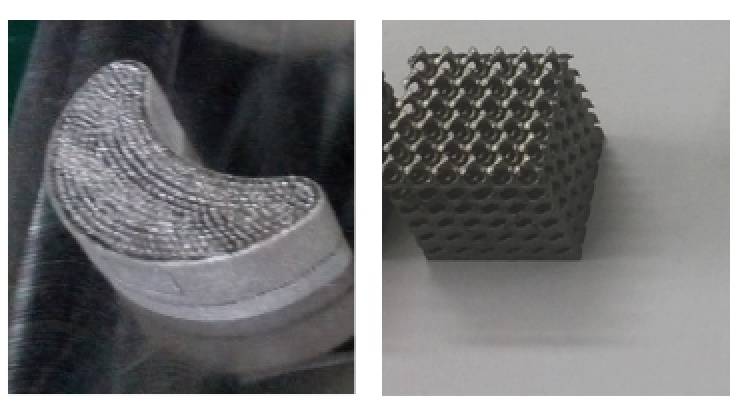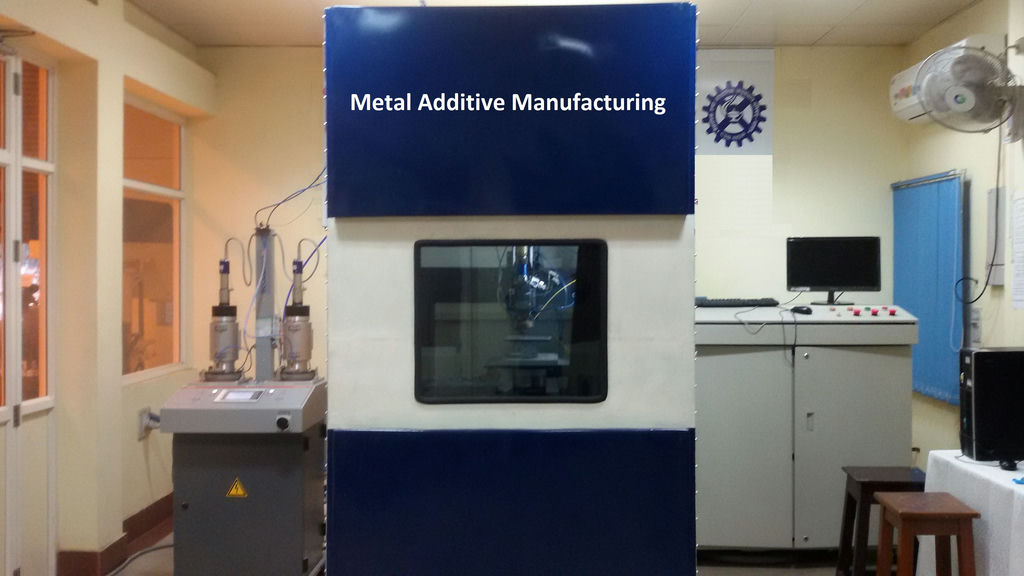CSIR Labs from across India will be showcasing their work and research at AMTech 2019 as a part of a special initiative by the organisers – Indian 3D Printing Network to build a strong indigenous ecosystem for the Indian Additive Manufacturing industry.
National Chemical Laboratory (NCL), Advanced Materials and Processes Research Institute (AMPRI), Central Mechanical Engineering Research Institute (CMERI), Institute of Minerals & Materials Technology (IMMT) and Central Electro Chemical Research Institute (CECRI) will be participating and showcasing their research at AMTech ranging from materials, hardware and software. We are presenting in this article the work they will be showcasing at AMTech.
CSIR – NCL
Scientists from CSIR-NCL, Pune have been working on development of new materials for additive manufacturing having potential applications in diverse fields such as biomedical, automotive, aerospace, energy, etc. Leveraging our unique expertise in synthetic polymer chemistry and material characterization, together with engineering capabilities we undertake the study of structure-property relationships in 3D printed products using advanced characterization tools such as electron microscopy, X-ray diffraction, X-ray microtomography, differential scanning calorimetry and mechanical testing. NCL scientists have developed a novel process, which includes a novel composition and a method (implementable on most commercial FDM printers without the need for hardware modification) for 3D printing of semicrystalline polymers like HDPE, PP, while keeping the printed objects warpage-free. We have demonstrated 3D printing of both virgin and waste-derived HDPE. This work, which has important implications for improving the recycling of polyethylene waste was done in collaboration with Protoprint Inc., a start-up company in Pune and was funded in part by the Department of Science and Technology, GoI. This work is protected by a patent application (PCT/IN2018/050740) and has also been described in a peer reviewed publication in the prestigious American Chemical Society journal, ACS- Applied Polymer Materials. We also work on developing strong and tough composites from biodegradable/biocompatible polymers that are suitable for additive manufacturing and for scaffolding applications in tissue regeneration. In addition, NCL is actively involved in developing photocurable polymeric and composite materials that can be used in resin formulation for application in stereolithography (SLA) technique. Recently, CSIR-NCL received a Center of Excellence (CoE) Award from Ministry of Chemicals and Petrochemicals for a research lab dedicated to additive manufacturing. The CoE is jointly working with industries to resolve fundamental challenges and develop specialized polymers and composites for customized additive manufacturing. Figure 1 shows various 3D printed objects.

CSIR-CECRI
Scientists from CSIR-CECRI, Karaikudi, Tamilnadu have been working on development of new materials and processes for various sectors such as automotive, aerospace, energy, biomedical etc. So far additive manufacturing is concerned; CECRI has established state – of – art 3D metal printing as well as polymer printing facilities with required post treatment facilities. Metal based AM technology is being used for development of components from stainless steel, Ti, Ti alloy, Co-Cr metal powder using selective laser melting process. Works involve process parameter optimization for dense product, fabrication of flow cell for battery application, development of porous scaffolds and patient specific implants for biomedical applications etc. We are also working on polymer and polymer composite for biomedical and other engineering application using 3D polymer printing technology. Several ongoing projects from various industries such as, Boeing, TVS etc are in progress apart from government funding agencies such as DST.
In additions, CSIR-CECRI is jointly working with CSIR-IMMT on a sponsored project from NALCO, India, towards development of AlSi10Mg parts/components for automotive and aerospace applications. Figure 2 shows typical 3D printed porous scaffolds for biomedical application.

CSIR – CMERI
CSIR CMERI has developed a indigenous Five Axis Metal Additive system with the following specifications:
- 5 Axis motion stage with 300 X 300 X 150 mm3 working volume.
- Diode laser of 1.2 KW and beam focus 500 μm
- Two hopper of capacity 1.5 liter each
Coaxial nozzle has been manufactured in-house from the multiphase flow simulation.
Coaxial nozzle for metal powder focussing
Five axis Metal Additive system
Porous structure Valve part Geneva cam
Aerofoil shape
- Surface roughness: 4 μm
- Build rate: 12.6 to 340 cm3/Hr.
- System accuracy: 50 μm/m., Increment 1 μm. (min.)

CSIR-IMMT

CSIR-IMMT has the expertise in developing many advanced materials through powder metallurgy, plasma processing, etc. to cater the need of defence, aerospace, automotive, biomedical sectors. State-of-art characterization facilities such as X-ray micro CT, XPS, TEM, FESEM, AFM, etc. are available to do a detailed characterization of the developed products/components. Advanced mechanical, thermal and tribological characterization facilities exist to evaluate the products/components for the desired end applications.
CSIR-IMMT is jointly working with CSIR-CECRI on a sponsored project from NALCO, India, towards development of AlSiMg parts/components. This project aims at developing AlSi10Mg parts/components for automotive and aerospace applications, through Powder Metallurgy (P/M) and additive Manufacturing (AM) routes. AM grade powder (spherical powder of size ranging from 10 to 50 μm) of AlSi10Mg procured from EOS was used for both the processes to fabricate the parts/components.

CSIR – AMPRI
CSRI – AMPRI will be showcasing their work on 3D Printed Graphene composites at AMTech.
Visa the CSIR Labs at AMTech on 11 – 12 December 2019 and take stock of the indigenous research happening in India on Additive Manufacturing

